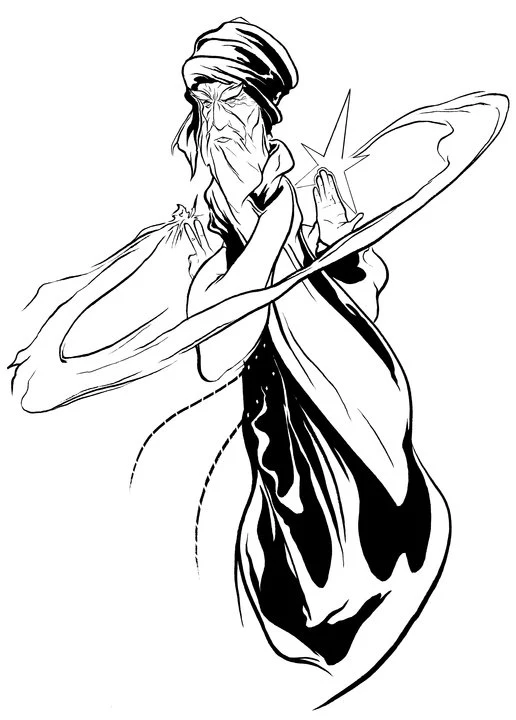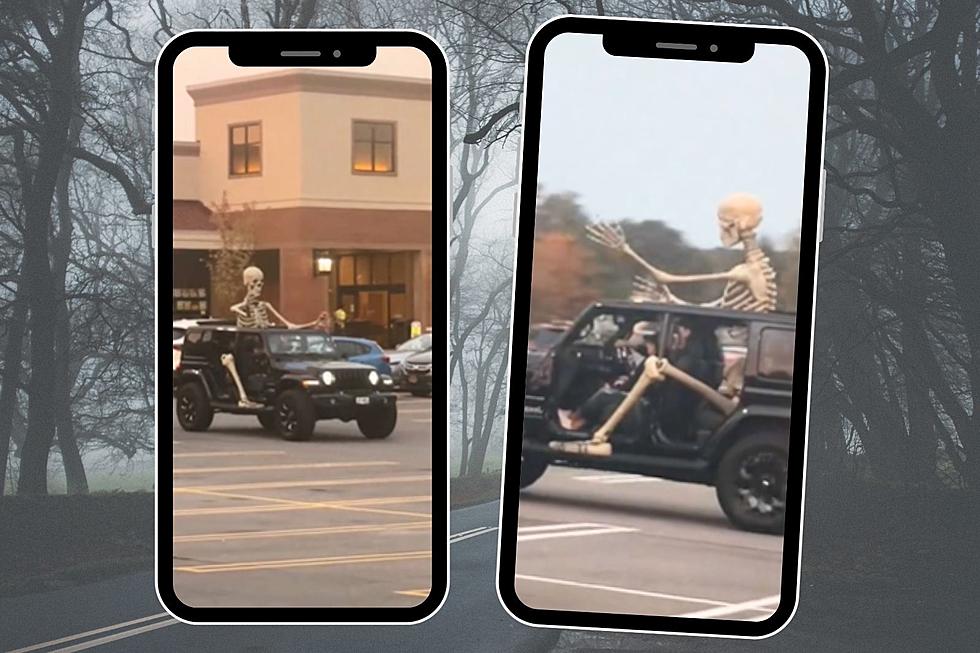
Everybody Draw Mohammed Day

Today is Everybody Draw Mohammed Day, an event that was inspired by the recent death threats again "South Park" creators Trey Parker and Matt Stone after a (censored) attempt to depict the Prophet Mohammed in their cartoon. A Muslim extremist website suggested that the two would "probably wind up like Theo van Gogh," and linked to an image of the Dutch filmmaker, who was brutally murdered for his film "Submission" about the abuse suffered by some Muslim women. The website called this "a warning of the reality of what will likely happen to them." The same post included the message "you can pay them a visit at these addresses," listing the locations of South Park's production company and Comedy Central, who quickly censored the episode.
It's a terrifying story, and an experience that has been shared by numerous cartoonists who tried to draw or parody Mohammed, notably the Danish cartoonists involved the "Jyllands-Posten" controversy -- a series of Mohammed cartoons that were intended to address concerns about artists self-censoring images of the Prophet -- many of whom had to go into hiding because of death threats or attempts on their lives, and Swedish artist Lars Vilks, whose Mohammed cartoon has lead to death threats, assault, and a recent alleged arson attempt on his house.
In a Boing Boing interview before the recent death threats, Parker and Stone talked about depicting Mohammed in their cartoon before the Danish cartoon controversy, and the difficulty of trying to do so afterwards, in the atmosphere of fear and censorship that followed. "Now, that's the new normal. We lost. Something that was ok is now not ok," said Stone. "If everyone would have just... printed the cartoons, everyone would rally together," said Stone. "Now that [cartoonist] has to be in hiding because... everyone left him out to dry. That's a big problem when you have The New York Times and Comedy Central and Viacom basically just p--sying out on it. That's just sad."
Asked whether they were scared of violent reprisals if they depicted Mohammed again, Parker said, "We would be so hypocritical against our own thoughts if we said, let's not make fun of them because they might hurt us. That's messed up to have that kind thought process. We'll rip on the Catholics because they won't hurt us, but we won't rip on them because they might hurt us." And yet for many television channels, newspapers, book publishers, and other media outlets, that has become precisely the case.
So it's not a total surprise to see cartoonists like the Pulitzer Prize-winning Mark Fiore stepping forward today to participate in Everybody Draw Mohammed Day. Fiore devoted today's cartoon animation to the issue of cartoonists under threat from extremists -- a cartoon that actually depicts Mohammed in a drawing, and a pretty bold statement in the current climate.

Many have expressed concerns that Everybody Draw Mohammed Day is anti-Muslim -- designed to offend not just extremists, but to hurt the feelings of the vast majority of Muslims -- and that it is needlessly antagonistic. And while some individuals have probably used it as an excuse to be offensive for its own sake, in the face of a deadly campaign by extremists to terrorize us into feeling like we cannot speak and express ourselves in this particular way, and one that many has been surprisingly effective in silencing the media, I think there is very much a need to assert our right to do so. I have great respect for the Muslim faith and those who believe in it, and while I think it would be childish and cruel to offend for the sake of offending, I believe that what is at stake here is more important than being polite or striving not to offend."Daily Show" commentator Aasif Mandvi -- a self-described liberal Muslim -- recently commented on the controversy, admitting that while depictions of Mohammed might give him offense, "here's what's more upsetting. Someone, in the name of a faith that I believe in, threatening another person for doing it."
And conversely there are plenty of recent examples of other faiths being mocked in cartoons in our culture; there have been many, many images and cartoons during the ongoing child abuse scandal in the Catholic Church that would profoundly offend devout Catholics, but as a country that values free speech that is part of the deal that we all make. There is no right not to be offended; indeed, as part of offering free speech to all we must often endure the opinions and expressions of others that strike painfully at the very heart of our most deeply held beliefs. And we, conversely, may tell those people exactly what we think of that in words just as strong, but there is absolutely no place in a free society for any group or figure or institution to claim the privilege of being exempt from ridicule, criticism, or depiction, and particularly to claim it on pain of death. There is no room for allowing terrorism or intimidation to go unchecked and determine what we may or may not say.
When I was 21 years old, I was profoundly affected by the book "Step Across this Line," a non-fiction collection by author Salman Rushdie, where he described the experience of living in constant fear of being murdered by extremists after a 1989 fatwa was issued by Ayatollah Khomeni of Iran, exhorting Muslims to kill Rushdie because of the way he depicted Mohammed in his book "Midnight's Children."
Rushdie was in many ways the original face of this particular type of terrorism against artists and writers, long before the Muhammed cartoon controversies, and he paid a very high price for speaking his mind: violent protests reminiscent of the Jyllands-Posten controversy took place, bookstores were firebombed, and even a failed assassination attempt. Every year on February 14th, the anniversary of the fatwa, Rushdie still receives a "valentine" from Iran reminding him that they have not forgotten, and that he is still sentenced to die. In "Step Across This Line," he chronicles the worst years of the crisis he spent in hiding, and the mortal fear that became a constant companion. He had this to say about to say about terrorism, and the way we must rise to meet it: "How to defeat terrorism? Don't be terrorized. Don't let fear rule your life. Even if you are scared."
From the fatwa that devastated Rushdie's life to the recent death threats against Trey Parker and Matt Stone, the intention of these extremists has been to silence us, to make these images and ideas not only taboo but literally deadly, and it is a terribly frightening thing. And Rushdie is right about fear: the only way to defeat those who would try to terrify us out of our most fundamental right to freedom of expression is not to be afraid. Even if we are.
Numerous other artists and ComicsAlliance readers around the web have added their own renditions to the mix:
Molly Norris
 CA Reader Ryan H:
CA Reader Ryan H:

CA Reader Mary Chambers:

CA Reader Daniel Azzari:

Dave Cortwright imitates Rene Magritte:

CA Reader Aaron:

Editor's note: A piece of art from this article was removed at the request of the rights holder.
More From ComicsAlliance









